The concept of equity is far more complicated than you probably think; but if you want to play  in the big leagues of commercial mortgage finance and structured finance, you need to be able to understand the dozen or so different meanings of the word, equity.
in the big leagues of commercial mortgage finance and structured finance, you need to be able to understand the dozen or so different meanings of the word, equity.
Let's take an easy example first - the equity in your home. Your house is worth $400,000. You have a $250,000 mortgage against it. The difference between the value of your house and what you owe against it is your equity - or $150,000 in this case.
Can a business have equity? Let's say your mortgage business is worth $2 million because you have a huge book of repeat clients. The company owes $30,000 on a car loan, $75,000 on your furniture loan, and another $95,000 to the bank on its line of credit. The difference between the value of company ($2 million) and the debt against the company ($200,000) is the owner's equity in the company ($1,800,000). So you can have equity in a company, just as you can have equity in real estate.
In fact, investment bankers (think: stockbrokers) are in business of raising both debt (think: loans) and equity (think: investments by outsiders) for corporations. In order to raise equity dollars for a corporation, an investment banker will find buyers for the corporation's stock. The difference between the assets of a corporation and its liabilities is called the stockholder's equity.
Now the wonderful thing about equity is that equity has no required payments. If you borrow from the bank to grow your company, you might have to make payments of, say, $9,000 per month. If the economy goes into a severe recession, you may not be able to make your $9,000 monthly payments. The bank might foreclose and wipe you out. You could lose your company.
But if you were able to raise the money to expand your business or to renovate your apartment building by selling equity, you would be far better off in a recession. There are no required payments on equity investments. You do not have to declare a dividend to the stockholders if the company is struggling. The investors in common stock cannot foreclose on your company if you cannot afford to pay them a dividend. They just have to wait until better times to get a return on their investments.
Equity investments are risky because the equity investors are the last to be paid if the company or project fails and the assets are sold off to pay the creditors.
Suppose you cannot afford to make the monthly payments on your house. You can't even afford repairs. The house deteriorates, so it is now only worth $360,000. The mortgage has been unpaid for months, and with interest and penalties, the balance grows to $290,000. The house sells at the foreclosure sale for only $300,000 because hardly anyone ever bids at foreclosure sales in real life. Guess what? The bank gets their entire $290,000 and the owner - the equity investor - only gets $10,000.
The equity investors are the last to be paid when a business or a piece of real estate is sold off to pay the debt. The equity investors take the biggest risk.
Equity also is an important concept in construction financing. Suppose a project will cost $10 million to build. The bank will usually insist that the owner of the project (the developer) must put up 20% of the total cost of the project, or $2 million in this case. This $2 million is the developer's equity contribution and can consist of his equity in the land, any costs he has pre-paid (architectural fees, engineering fees, etc.), and the cash he can bring to the loan closing.
What if the developer doesn't have enough equity dollars in the project? The developer can sell part-ownership of the project to some rich doctors that he knows in order to raise more equity.
Another alternative would be to get a mezzanine loan (sort of like a second mortgage) behind the construction loan.
Finally, the developer can go to a company that specializes in raising equity dollars for real estate projects. You can think of real estate equity investors as venture capitalists who help provide the equity required by construction lenders. In return for their equity investments, these investors typically require a preferred return (they get paid before the developer gets paid anything), as well as a large share of the ownership of the project.
As you can see, equity means a lot of different things, depending on the context. But the important concept to understand is that equity provides a protective buffer for the lender, and from the lender's point of view, the more equity, the better.








 lend. We lenders call such cities, "Primary Markets".
lend. We lenders call such cities, "Primary Markets".











 Are our leads any good?
Are our leads any good?  There are lots of tricks and techniques you can use to find more commercial mortgage referrals to send to
There are lots of tricks and techniques you can use to find more commercial mortgage referrals to send to  All you have to do is visit our
All you have to do is visit our 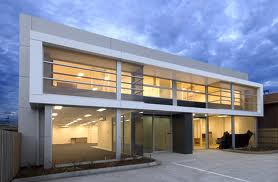 on small commercial loans. Large commercial loans rarely close these days. Here's why:
on small commercial loans. Large commercial loans rarely close these days. Here's why:
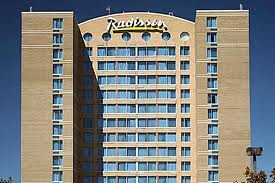 appetite declined sharply for commercial mortgage-backed securities. Investors would only buy these bonds if the rates were much higher. In the parlance of the industry, the spreads or margins over corresponding Treasuries spiked sharply.
appetite declined sharply for commercial mortgage-backed securities. Investors would only buy these bonds if the rates were much higher. In the parlance of the industry, the spreads or margins over corresponding Treasuries spiked sharply.
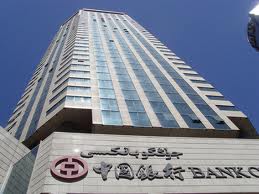 some other far-off locale. To the best of my knowledge, none of them ever get funded by American lenders.
some other far-off locale. To the best of my knowledge, none of them ever get funded by American lenders.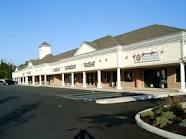 15% of the purchase price. He will then try to get a loan from a commercial bank for 75% of the purchase price.
15% of the purchase price. He will then try to get a loan from a commercial bank for 75% of the purchase price. in the big leagues of commercial mortgage finance and structured finance, you need to be able to understand the dozen or so different meanings of the word, equity.
in the big leagues of commercial mortgage finance and structured finance, you need to be able to understand the dozen or so different meanings of the word, equity.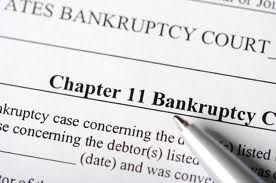 Suppose the Jones family is in the business of manufacturing widgets. The Jones family owns the industrial building occupied by Jones Widgets, Inc. The property is worth $1 million.
Suppose the Jones family is in the business of manufacturing widgets. The Jones family owns the industrial building occupied by Jones Widgets, Inc. The property is worth $1 million.
